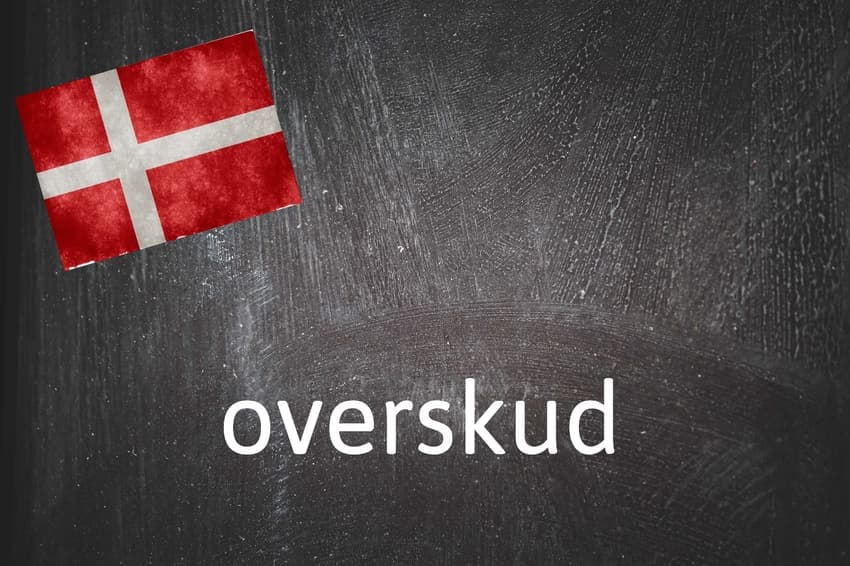Danish word of the day: Overskud

Photo by Francesco Ungaro on Unsplash and Nicolas Raymond/FlickR
Have you completed all your tasks with time and energy to spare this Monday?
What is overskud?
Overskud is the noun form of the antiquated verb at overskyde, which literally means "to overshoot" and can be used to say that something exceeds expectations or that you have more of it than what you need.
The noun form, overskud, is still in common use. It has two meanings: one relates to economic surplus or profit, and the second, which does not have an exact equivalent in English, can describe the energy or desire needed to take on a task.
There is a second verb related to this noun, at overskue, which you are much more likely to hear in everyday Danish. This means the act of having enough energy or desire to do something.
Why do I need to know overskud?
As noted above, it's a very popular (and useful) term in Danish that doesn't have an exact English equivalent (unless you're using it in its more rigid, accountancy-related guise).
It's a good way of telling someone politely, but firmly, you are not going to do something. That way, you can avoid half-heartedly going along with something for the sake of not appearing discourteous.
If a Dane tells you they do not have the overskud for doing something, there's no need to be disappointed. They aren't telling you your invitation for coffee or request for practical help is a bad idea, but being honest and telling you that they're not up to it at the moment. You can feel free to ask them again on another occasion.
On the other hand, someone might display some real overskud by showing up when they're not expected to or putting in some extra graft because they want to do you a favour.
Examples
Det var totalt overskudsagtigt, at han kom og hjalp med at flytte, dagen efter han løb marathon
He went above and beyond by coming to help us move house the day after he ran a marathon.
Jeg havde intet overskud tilbage efter arbejde, så jeg tog ikke til festen.
I had no energy left after work, so I didn't go to the party.
Comments
See Also
What is overskud?
Overskud is the noun form of the antiquated verb at overskyde, which literally means "to overshoot" and can be used to say that something exceeds expectations or that you have more of it than what you need.
The noun form, overskud, is still in common use. It has two meanings: one relates to economic surplus or profit, and the second, which does not have an exact equivalent in English, can describe the energy or desire needed to take on a task.
There is a second verb related to this noun, at overskue, which you are much more likely to hear in everyday Danish. This means the act of having enough energy or desire to do something.
Why do I need to know overskud?
As noted above, it's a very popular (and useful) term in Danish that doesn't have an exact English equivalent (unless you're using it in its more rigid, accountancy-related guise).
It's a good way of telling someone politely, but firmly, you are not going to do something. That way, you can avoid half-heartedly going along with something for the sake of not appearing discourteous.
If a Dane tells you they do not have the overskud for doing something, there's no need to be disappointed. They aren't telling you your invitation for coffee or request for practical help is a bad idea, but being honest and telling you that they're not up to it at the moment. You can feel free to ask them again on another occasion.
On the other hand, someone might display some real overskud by showing up when they're not expected to or putting in some extra graft because they want to do you a favour.
Examples
Det var totalt overskudsagtigt, at han kom og hjalp med at flytte, dagen efter han løb marathon
He went above and beyond by coming to help us move house the day after he ran a marathon.
Jeg havde intet overskud tilbage efter arbejde, så jeg tog ikke til festen.
I had no energy left after work, so I didn't go to the party.
Join the conversation in our comments section below. Share your own views and experience and if you have a question or suggestion for our journalists then email us at [email protected].
Please keep comments civil, constructive and on topic – and make sure to read our terms of use before getting involved.
Please log in here to leave a comment.